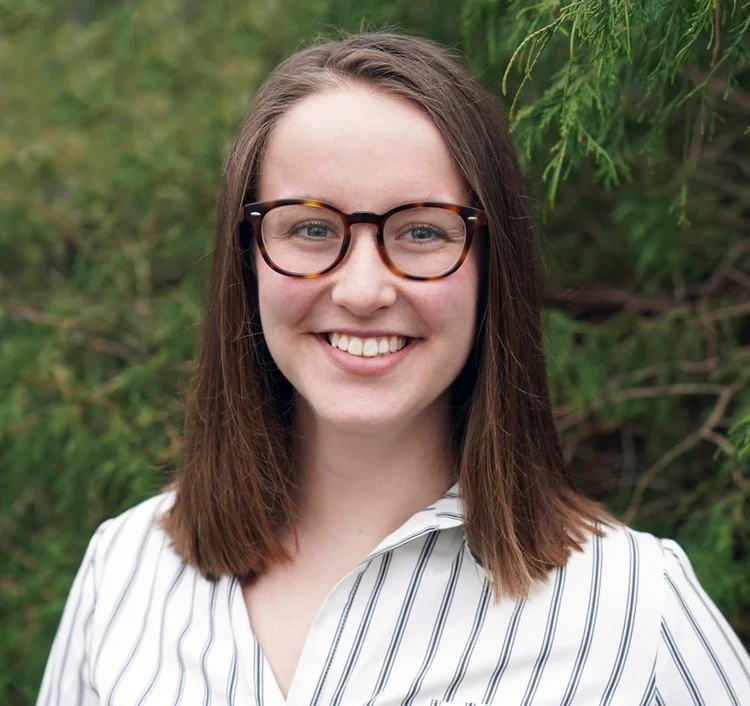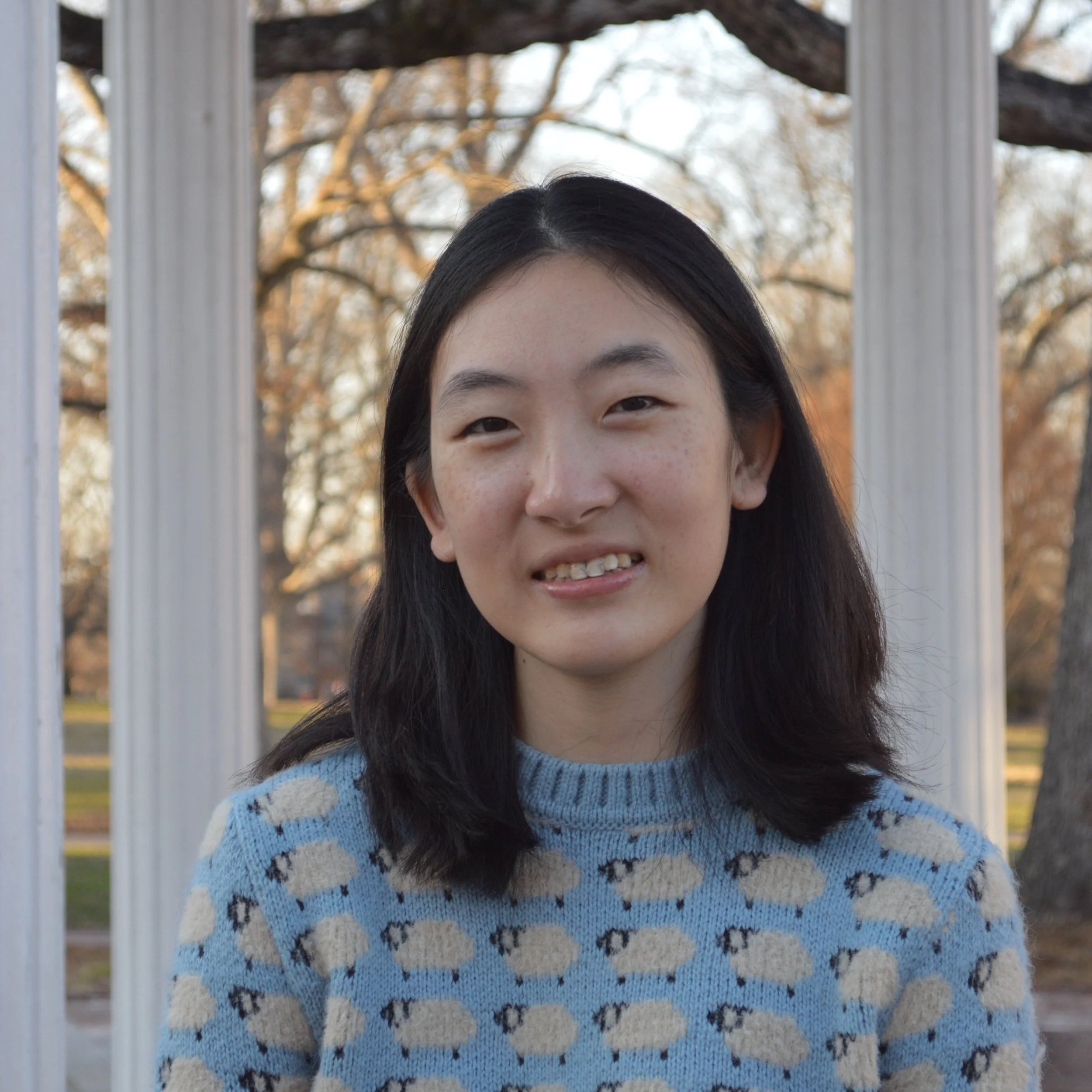We study animal-microbe interactions. We’re interested in how these associations evolve and the underlying molecular and immunological mechanisms. We blend molecular, genomic, microbiological, and experimental techniques, and we focus on insect model systems and their associated bacteria, viruses, and fungi. We’re located in Fordham Hall in the Department of Biology at UNC Chapel Hill. Our work is supported by NSF and NIGMS/NIH.
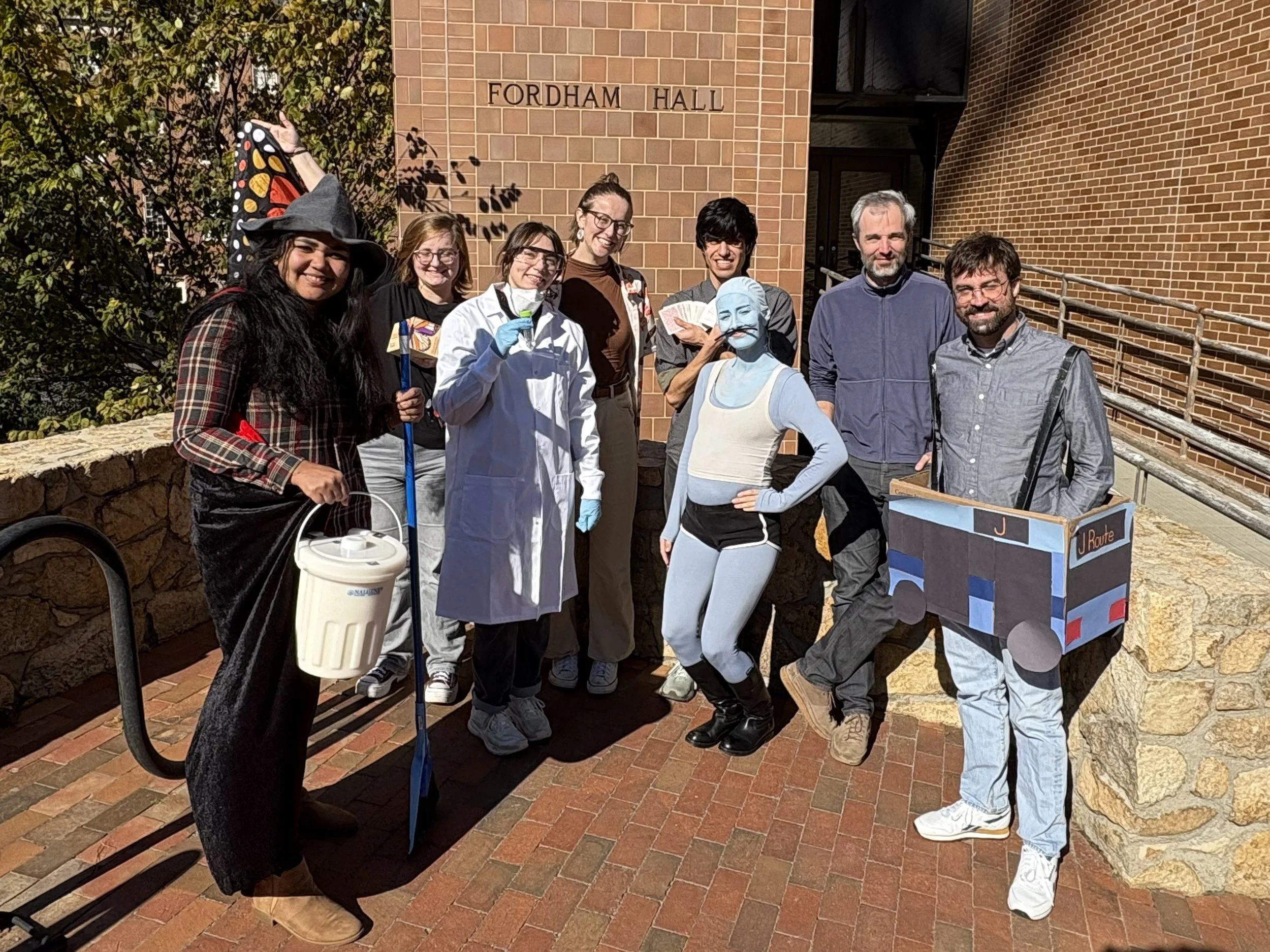

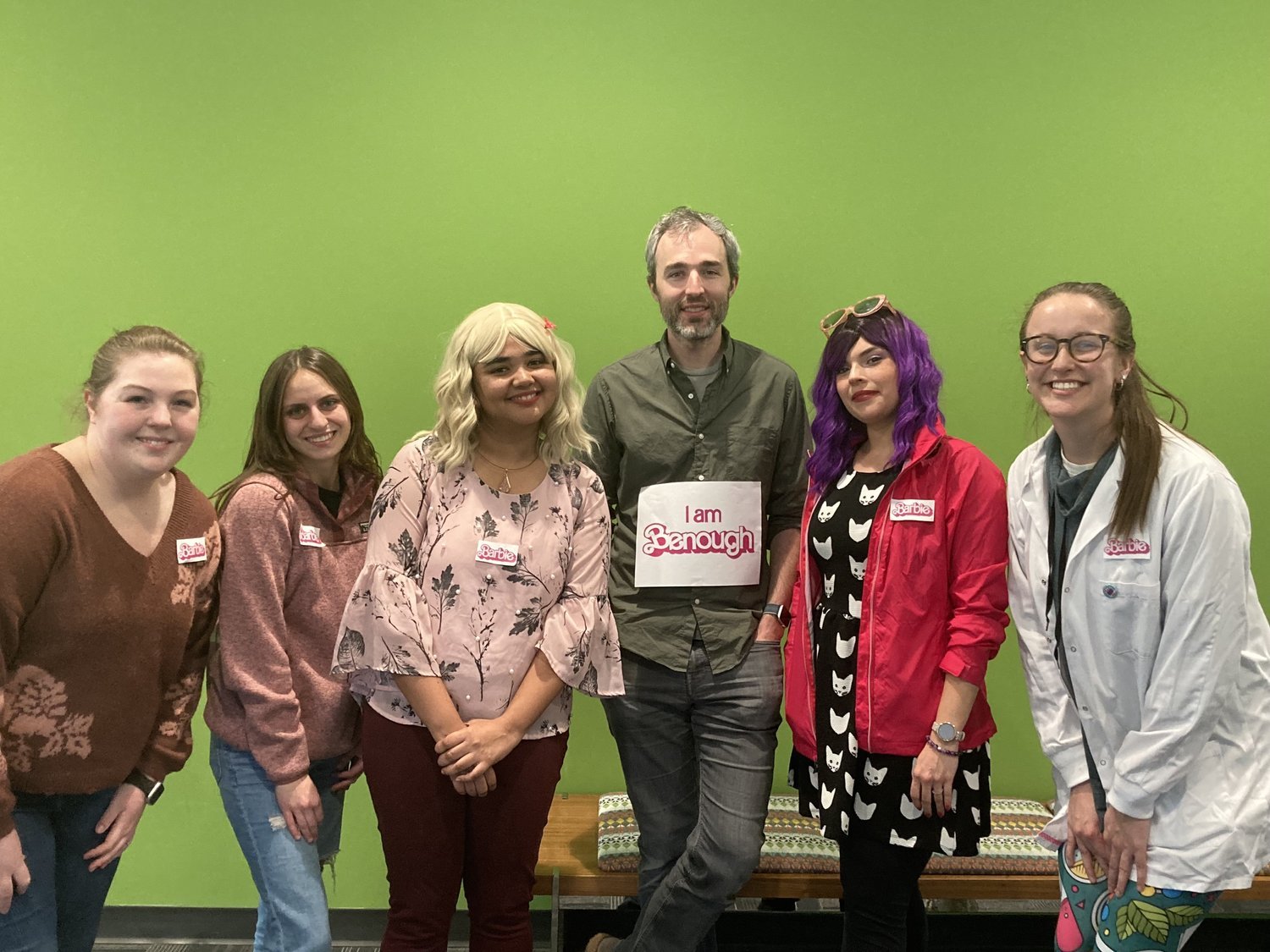
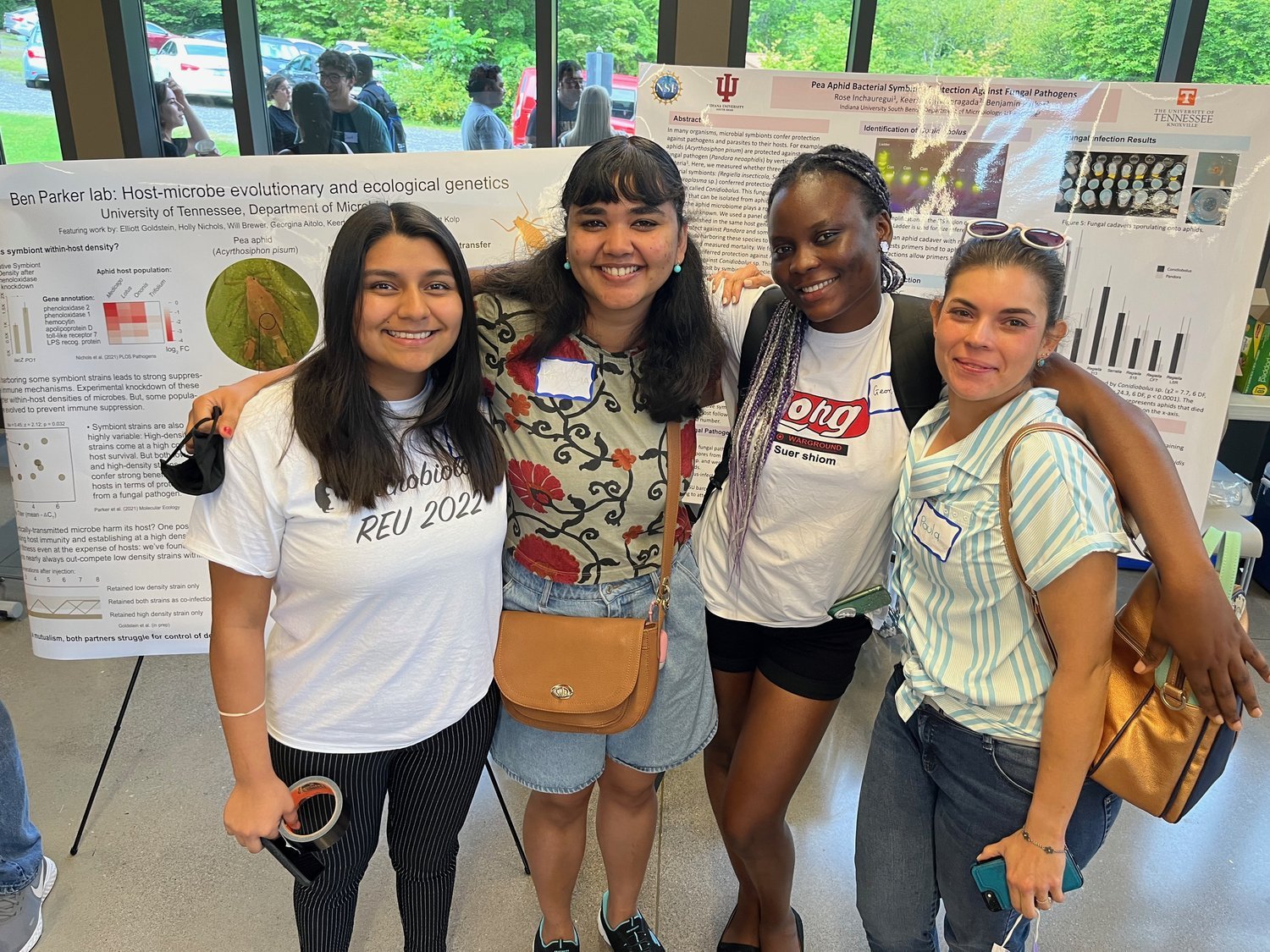
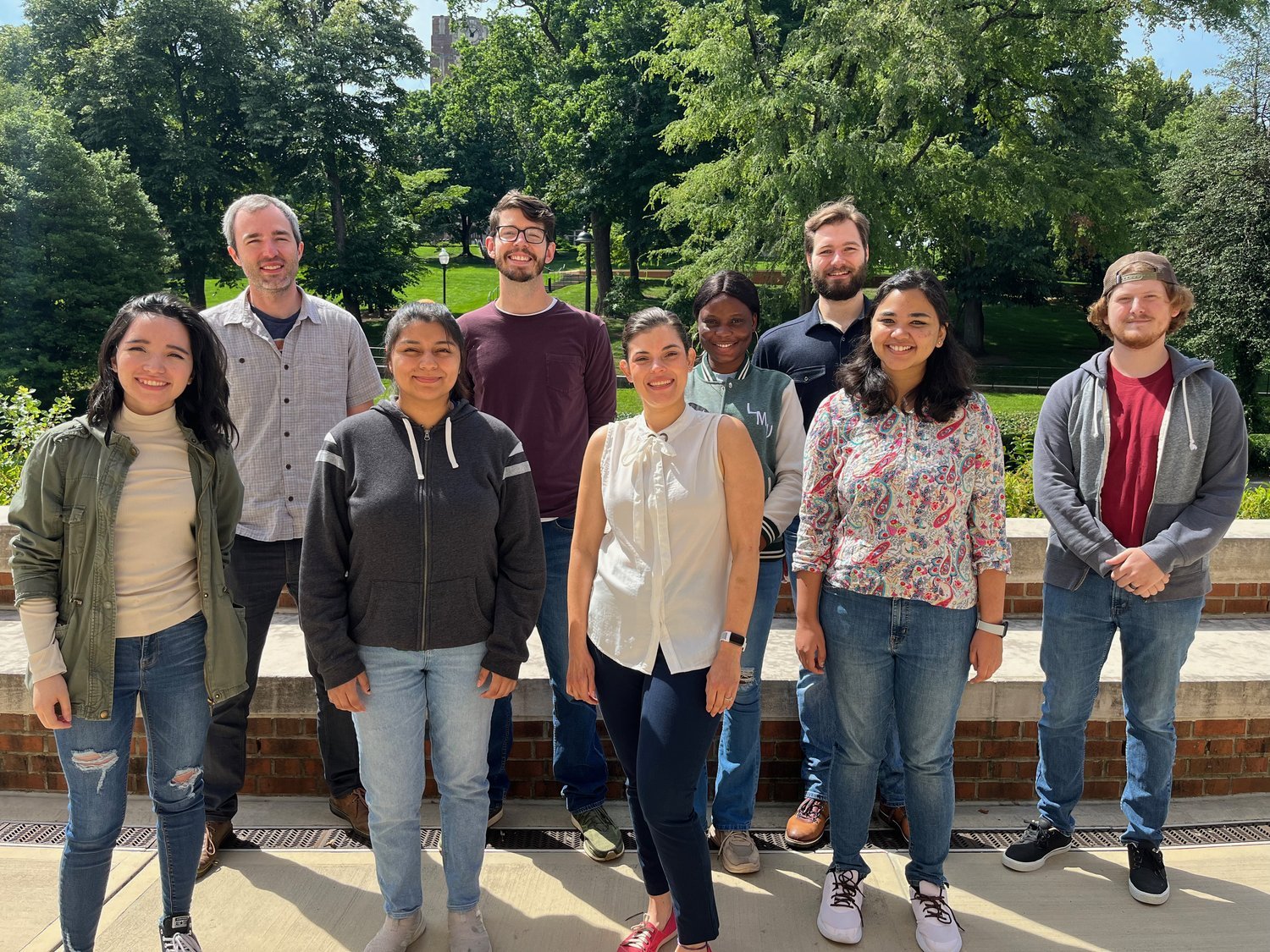
-
Host-symbiont coevolution
How does the immune system evolve to regulate beneficial microbes while combatting pathogens?
-
Pathogen evolution
How do pathogens kill insects, and how do hosts and their microbiomes resist infection?
-
Heritable viruses and lateral gene transfer
How do vertically-transmitted viruses shape insect ecology and evolution?
-
Applied microbiology and entomology
How can this knowledge be harnessed to combat pest insects?
Recent publications
-
Parker & Rozo-Lopez. (2026) Heritable viruses as hidden drivers of insect phenotypes and evolution. Annual Review of Entomology 71.
-
Rozo-Lopez, Torres, Torres, Drolet, Kafer, & Parker (2025) Heritable viral symbionts in the family Iflaviridae are widespread among aphids. In press, Applied and Environmental Microbiology.
-
Kolp, de Anda Acosta, Brewer, Goldstein, Nichols, & Parker (2024) Pathogen-microbiome interactions and the virulence of an entomopathogenic fungus. Applied and Environmental Microbiology, 90(6).
-
Goldstein, de Anda Acosta, Henry, & Parker (2023) Variation in density, immune gene suppression, and co-infection outcomes among strains of the aphid endosymbiont Regiella insecticola. Evolution, 77(7): 1704-1711.
-
Nichols, Goldstein, Saleh Ziabari, & Parker (2021) Intraspecific variation in immune gene expression and heritable symbiont density. PLOS Pathogens. 17(4): e1009552.
-
Parker, B.J. Mechanisms and evolution of heritable microbial density in insect hosts. (2021) mSystems. 6(4): e00728-21.
People
Lab News
-
Lab News Summer 2025
We welcomed several new lab members this summer: Stephen Salisbury started as a postdoc in the lab after finishing his PhD in Micro/Immuno at UNC, and PhD student Ashlyn Anderson rotated and then the joined the lab from the BBSP program. Keertana & Ben went to the Animal-Microbe Symbiosis Gordon Conference In June. Ben & Paula had a paper accepted in the Annual Reviews of Entomology on heritable viruses.
-
Lab news spring 2025
We wrapped up our first semester at UNC Biology. Post-bac Joseph had a paper on the A. solani genome assembly published in G3, and former undergrad / CURE student Seth published a first author paper on the firefly virome in microPubs. Postdoc Paula posted a preprint about her work on heritable viruses across the aphid phylogeny, and more importantly, announced the birth of her daughter in February! Keertana & Ben setup the new lab at UNC and most of the aphid lines survived the move.
-
We've Moved!
We’re excited to announce that the Parker Lab moved to the University of North Carolina at Chapel Hill Department of Biology in January 2025.
-
It's a MIRA-cle
We’re grateful to have received the NOA on a new grant from NIH/NIGMS through the R35 MIRA program. The award provides generous support for the next 5 years on our research into the evolutionary genetics of host-symbiont coevolution.
-
Meaghan awarded a DoD smart fellowship!
Meaghan Adler (Ph.D. student, Microbiology) was awarded a Science, Mathematics, and Research for Transformation (SMART) fellowship from the Department of Defense!
Read about it here.
-
MICR493 students present at EuRECA
Students that participated in the lab’s insect virus discovery course presented their findings at UTK’s Exhibition of Undergraduate Research and Creative Achievement poster session



